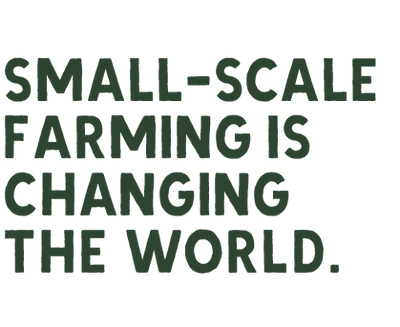Text and photos by Catherine Bernier
On Fogo Island in Newfoundland, Islanders are honouring the past, while feeding themselves and reinventing their local economy. Among them, Timothy Charles, Executive Chef at the prestigious Fogo Island Inn, is deepening his knowledge of organic agriculture to ensure sustainability on the island and to provide for his own family; Alf Coffin, a green-thumbed fisherman, is defying the seasons by using the practices of his ancestors to enrich his land at Joe Batt’s Arm; and Paddy Barry, a photographer from the community of Tilting, is gardening Celtic land at dusk to grow amaranth and other ancestral plant species.
“The reason why it’s still possible to live here today is because the government finally thinks it’s an asset,” explains executive chef Timothy Charles, who arrived in 2012 when the inn was still under construction. It was the idea of living in a rural area and still being able to cook nearby that attracted the native Nova Scotian to settle on the island. “The ethos of the project aligned with my values: social enterprises are beneficial to the association, and the profits are redistributed in the community.
The chef tries his best to work with hyperlocal businesses to meet the needs of the Fogo Island Inn restaurant. If he is unable to source from them, he collaborates with family-owned businesses in Newfoundland and finally, as a last resort, looks to other eastern Canadian provinces. “Over 80% of our fish is caught here on Fogo Island. All our animal proteins, except for the Quebec duck (from la Canarderie), come from the province and some from the island. We are also allowed to serve local wild game such as moose, caribou, and rabbit,” says Charles.
“Over 80% of our fish is caught here on Fogo Island.”
What he prefers above all is working with small producers native to Fogo, like Alf Coffin and Winston Osmond, a carpenter and painter respectively, who maintain a garden on their property. “The personal connection we have with them is something powerful,” says Charles. Fun fact: for the first few years of working with Coffin, Charles’s team had to pick their own vegetables from his garden, while he was busy fishing commercially for shrimp. The fisherman has since retired, but remnants of his trade have merged with his agricultural practice. Like his ancestors, Coffin enriches his soil with the remains of fish and shellfish, and collects kelp, a powerful natural fertilizer available in abundance. He also waters his garden with sea water, which Charles says makes his food particularly interesting to cook with due to its high salt content.
“People joke that Newfoundlanders mainly grow the typical vegetables for Jiggs Dinner, a traditional dish made with salt meat, cabbage, turnips, potatoes, carrots, and boiled beets, but other vegetables grow just as well here,” says Charles. At the chef’s request, Coffin began growing fennel in phased planting. “We gave him seeds, and he is now confident in this practice. So, we now have access to small fennel all year round for the restaurant!”
Coffin uses his root cellar as natural refrigeration, to preserve his sweet and crisp potatoes. These types of cellars have stored vegetables for centuries and demonstrate how the Islanders of Fogo have been able to survive through hard times. This practice is still alive on the island. “The best farming practices came from poverty,” says Charles. He and his partner Jennifer recently purchased 25 acres on the island. Their goal is to learn local practices that have stood the test of time and then adapt them on a large scale. “Our project was born out of the frustration of not being able to feed our own family. The food comes to us rotten before we even have a chance to taste it. We asked ourselves: how do we sustain our way of life in a place like this?” ...
***





